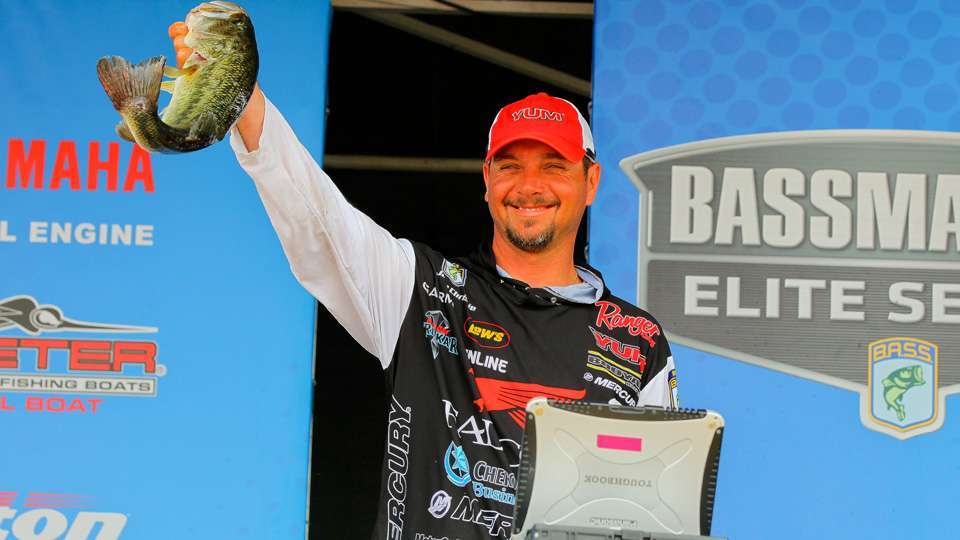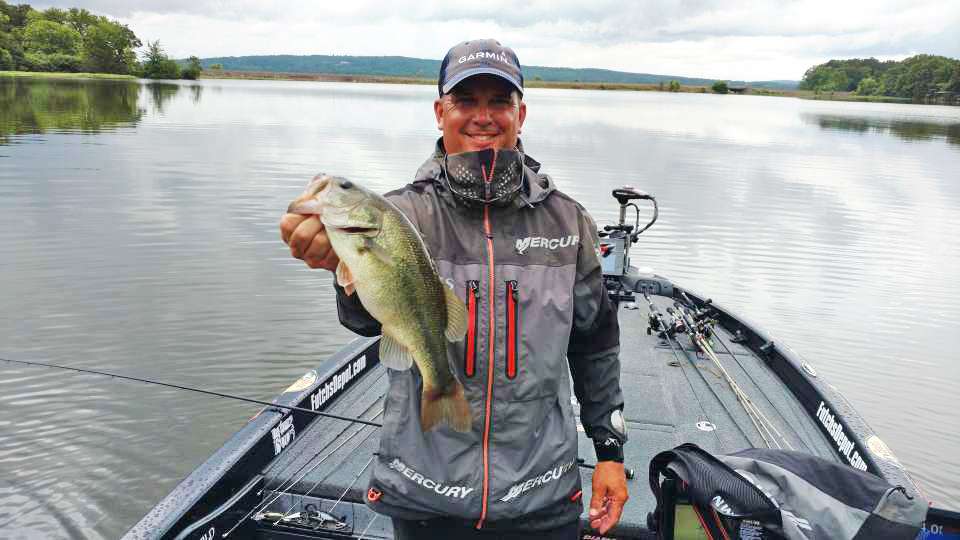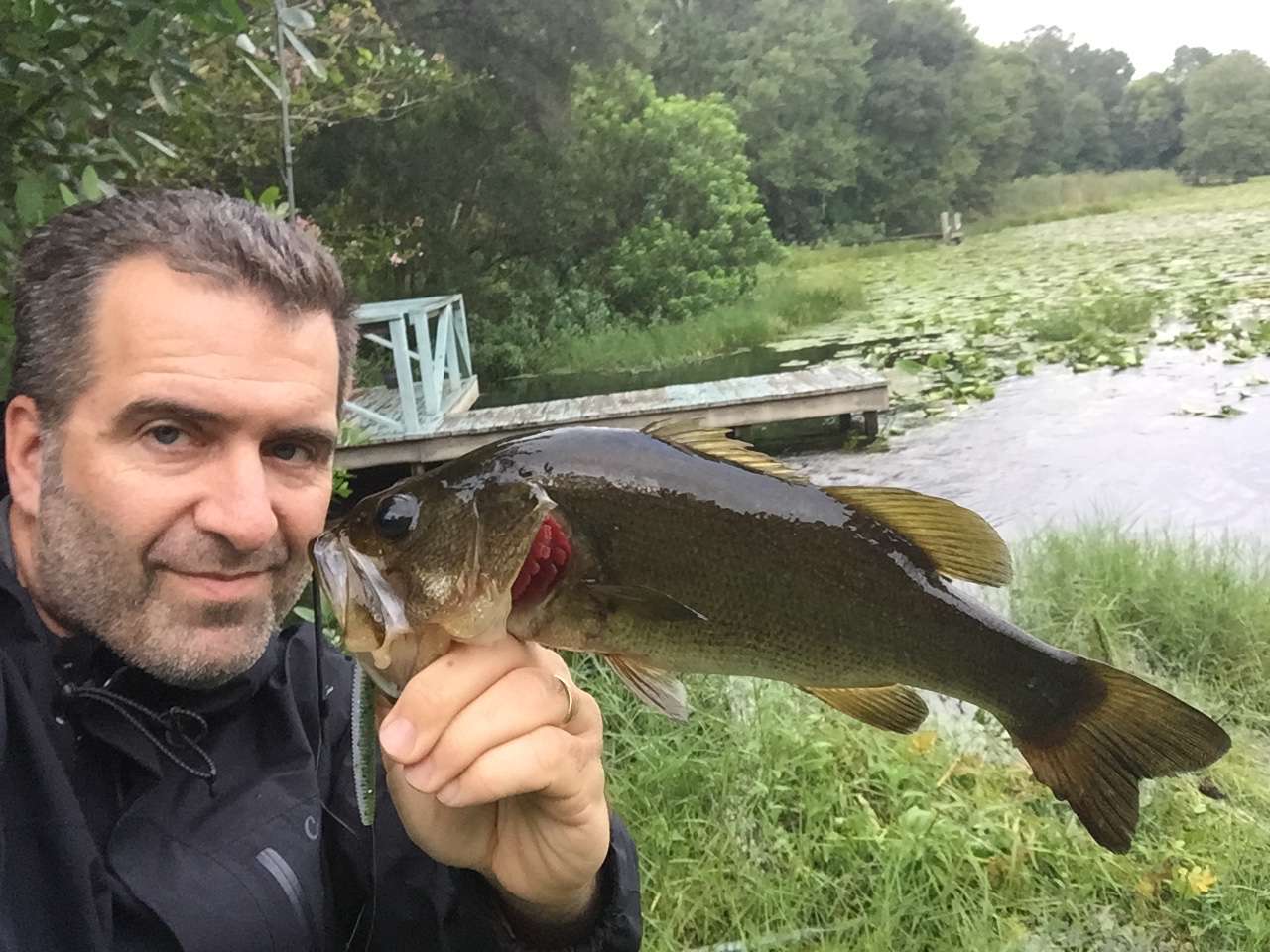
We focus a lot on where fish are, but part of that is understanding where they’re coming from, where they’re going to — and how this all shakes out in the event of changing conditions or opportune moments.
As Bassmaster Elite pro Jason Christie notes, spring and fall see the most predictable and the most significant moves, as fish migrate into and out of creeks, coves and pockets for the spawn and the fourth-quarter feeding fest. Both undeniably significant, but zooming in from the overall seasonal patterns, we’ll see that consistency often requires awareness of — and reaction to — daily fish movements.
“You want to stay a couple steps ahead of the fish,” Christie said. “It’s always best when the fish are coming to you.”
So, how do you do that? Consider why fish relocate.
Feeding time: Find the food and you’ll find the fish; it’s a simple axiom, but knowing when and where to adjust requires a constant monitoring effort — both visually and via sonar. From summers offshore, to the fall gorging, bait schools influence fish positioning — but so does larger forage.

In 2017, Elite pro Cliff Prince caught most of his eighth-place Bassmaster Elite at Dardanelle fish while punching big mats adjacent to bream beds. As Prince noted, the fish were using the mats as cover/staging areas from which to launch their assaults. When bream activity increased up in the day, bass would move to the mat edges to take their shots at distracted bluegill.
Look to the sky: Elite pros often see a full week of meteorological variance, but even the weekend angler scouting and networking for an upcoming event will benefit from Prince’s insight.
“Just because you caught them (in a certain spot) in practice, doesn’t mean they’re going to be there during the tournament,” he said. “Your practice days may revolve around cloudy, rainy conditions where the fish move shallow, but unless it rains for a solid week, your tournament won’t see the same thing.
“You have to keep in the back of your mind that the fish won’t be in a foot and a half of water when the sun comes out. You have to try to identify what cover they’re going to relate to.”
Where breezes blow: Wind is your friend, but a friend with ground rules. Too little and that shallow reaction bite goes away; too much and turbidity may push fish out of an area.
“In practice, the wind might be 5 mph, but when the tournament rolls around, it might be 15, so you have to look at where the fish will move to at the opposite side, or the opposite end of the lake,” Prince said. “You have to look at what those fish are relating to and then duplicate that (wherever they move).”
Worth a mention: Wind-blown mud lines create cover for savvy fish, so check these darker boundaries for ambushing bass.
Water movement: Tides and dam release schedules both position fish for feeding and comfort pursuits, but while the latter is generally predictable via published data, the former merits deeper consideration.
“The tide stage (incoming or outgoing) determines which way the bait will be coming from, but you have to consider that the tide is about an hour later every day,” Prince said. “Also, it switches direction every week.)
Christie adds this: “If you get some rain and that water level comes up, and I mean even 2 inches, those fish will move shallower.”
Fishing pressure: When the lake’s crowded, identify the adjacent areas or the more concentrated spot within the spot where shell-shocked fish might seek refuge. Ledge fish might slide out to suspend over deep water or move onto adjacent flats peppered with isolated wood; while grass mat fish often flee perimeter pressure by pushing to the denser interior zone.
Prince saw the latter case on Dardanelle and capitalized by punching deep in the mat with a 2-ounce weight, while others pushed fish to him by hitting the outside edges with lighter rigs.
The X Factor: As Christie explains, this one tends to throw the proverbial monkey wrench in the best-laid plans, but it keeps us on our toes.
Example: While fishing a team tournament with his uncle, Christie watched a 4-pounder chase his swim jig out from a dock. The fish lost interest, but it swam close enough for Christie to notice a distinctive black spot on its forehead.
“We were heading out of the cove when that happened, but when we came back later, we started from the opposite direction, one dock ahead of where that happened,” he said. “We got 10 docks away and 100 yards from that dock where the fish chased my jig and my uncle flips under a dock and catches that exact same fish. That marking was just like a tattoo — it was definitely the same fish.
“I think fish are like people, they have personalities. Some are lazy; some more active and move around a lot and hunt. That fish could have been hunting that day. My guess was he was just a hunter.”
Making it count
Perspective only benefits those who know how to apply it, and that’s the point of Christie’s closing thoughts. Admitting that some of his best tournaments followed miserable practices, he knows the value of fishing with an strategic flexibility — preferably by choice; but by default works.
“As anglers, we get bites and we get confident in certain things, but in a tournament, we tend to get close minded and we only want to fish the areas and the baits that were productive in practice,” he said. “What separates the average anglers from really good anglers is staying open minded. You have to spend a little time each day trying different things to see if the fish are moving. Sometimes, that’s a waste of time, but sometimes, that’s where you really find them.
“If I’m fishing a stretch of laydowns where I’ve had bites, I might be thinking ‘Are these fish moving to this outside grass?’ If you don’t try it, you spend a big part of the day thinking about it. What works for me is to go try it for a 20-30 minutes and, even if they’re not out there, it clears my mind and allows me to focus.”
On any given day, the variables are many and the contingencies complex. Fishing, Christie said, comes down to an educated guess far more often than a definitive formula.
“I guarantee you, that as soon as you think you have it figured out, you’re going to get humbled and the fish are going to change,” he said.
Indeed, fishing is a chess match. What’s your next move?





